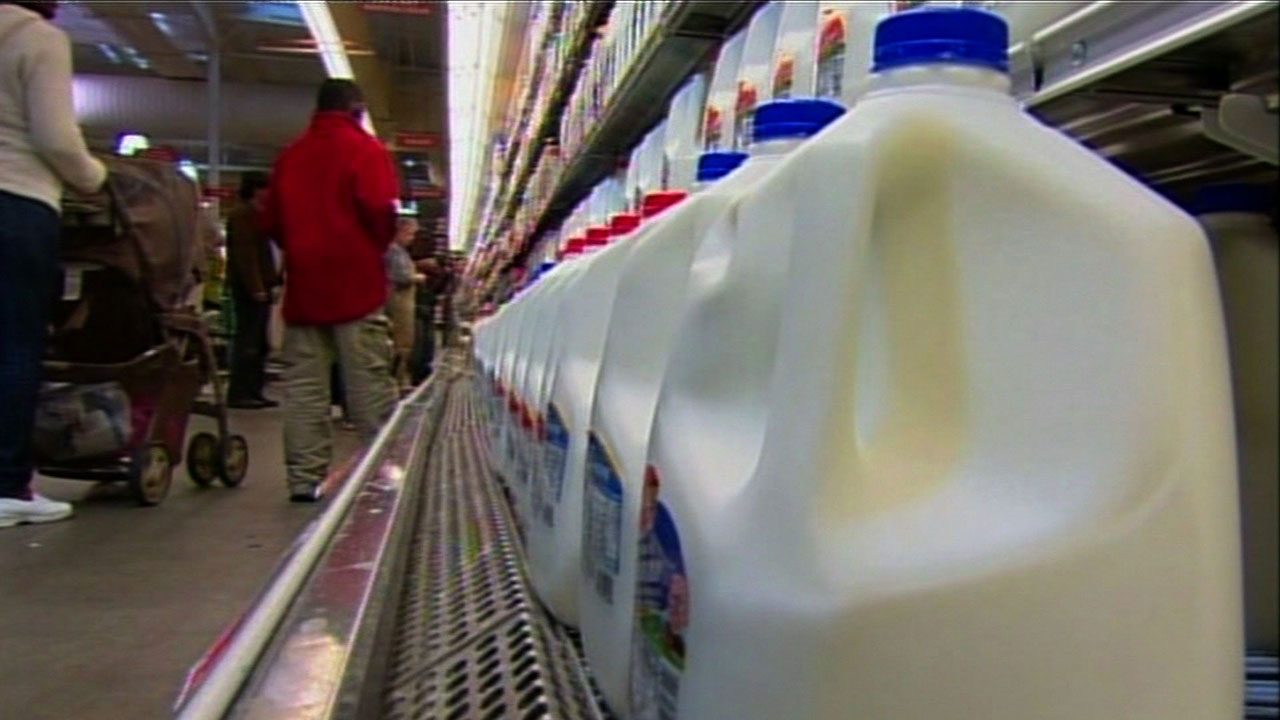
Got milk? The simple question that spawned countless parodies and milk mustaches is being sidelined. Now it’s time for consumers to “Milk Life.”
The Milk Processor Education Program, the marketing arm for milk processors nationwide, is shelving the popular tagline in favor of a new ad campaign that casts milk as a key ingredient to an active lifestyle. In the first video for the newly launched campaign, people use milk to help them play basketball and rock out in a garage band. It could easily be mistaken for a Gatorade commercial rather than one for a dairy product.
“Milk is in most refrigerators, but what would get [people] to actually pull it out and use it more often is this understanding of milk’s nutrients, and especially protein,” says Julia Kadison, the interim CEO of MilkPEP. The new campaign has a double meaning, she says. “Milking life is about getting every last drop out of your day. Having a milk life is a way of living where milk can empower you to do your best.”
The new campaign will have big shoes to fill as a followup to one of the most recognizable taglines ever. The “Got milk?” slogan originated in 1993 as a rebranding effort for the California Milk Processor Board. The company’s ad agency, Goodby, Silverstein & Partners, wasn’t sure at the time what to do with what one executive called “the most boring project imaginable.”
“Milk is not a very high-interest item in people’s lives. It’s a staple,” says Jeff Goodby, co-chairman of the agency. “We discovered there was a certain kind of irreplaceability to milk that I think is what made the campaign work. We did a focus group where a woman said, ‘The only time I notice milk is when I run out of it.’”
That comment sparked the idea for the slogan and the initial batch of ads. The first commercial famously featured a man with a mouthful of peanut butter screaming “Aaron Burr” during a radio call-in show and desperately lunging for a carton of milk. After the initial ads were a hit in California, MilkPEP licensed the phrase and launched the popular celebrity posters featuring the slogan in the mid-’90s. Eventually about 300 stars would don the iconic milk mustache in ads that filled magazines and school cafeterias.
Goodby says the campaign’s simplicity gave it resonance. “It’s a truth,” he says. “‘Got milk?’ is an acknowledgement that milk is essential, and if you don’t have it, then something is missing.”
While the ads proved successful, milk sales overall have been on a steady national decline for decades. Per-capita consumption of fluid milk and cream fell by 25 percent from 1975 to 2012, according to the USDA. Euromonitor projects that milk sales will fall another three percent by 2018. Kadison pegs milk’s troubles to a variety of factors, from long-term unemployment to a declining birth rate to the rise of “impostor” dairy products, as she calls them, like almond milk and soy milk.
The new “Milk Life” ads attempt to recast milk for a hyper-competitive food and beverage marketplace. The first commercial points out that a glass of milk can have eight grams of protein, likely hoping to encourage people to reach for the milk carton instead of an energy bar in the morning. Ads will be rolled out across television, print and online platforms, as well as in retail stores.
It’s not just the old slogan that’s gone—the celebrities and their milk mustaches are gone too. Kadison says the “Milk Life” campaign will focus on regular people for now. “We think in order to make milk and this message really relevant to consumers, we need it to be relatable and recognizable with everyday people,” she says. MilkPEP has also stopped sending milk posters to schools, instead focusing on convincing parents and other adults of the value of milk.
Despite the change in messaging, “Got milk?” it’s far from dead. MilkPEP will continue to license the phrase, according to Ad Age. Goodby and his agency will still make “got milk?” ads in California for the state’s milk processor board. “I’m not disappointed,” he says of MilkPEP’s shift in tactics. “ I think it’s an interesting experiment and I’ll watch it with fascination. They’re trying to embrace the sort of greater goodness of milk. There’s nothing wrong with that.”
But he doesn’t expect “got milk?’ to exit the public consciousness anytime soon. The phrase has been remixed to apply to everything from religious expression (got Jesus?) to anti-war protest (got democracy?). The endless parodies are actually one of his favorite aspects of the campaign’s legacy. “It’s still the most iconic thing we’ve ever worked on,” he says. “I actually feel kind of proud of it when people use it for a good purpose in their own lives. It’s in people’s heads, and that’s really irreplaceable when it comes to advertising.”
More Must-Reads from TIME
- Donald Trump Is TIME's 2024 Person of the Year
- Why We Chose Trump as Person of the Year
- Is Intermittent Fasting Good or Bad for You?
- The 100 Must-Read Books of 2024
- The 20 Best Christmas TV Episodes
- Column: If Optimism Feels Ridiculous Now, Try Hope
- The Future of Climate Action Is Trade Policy
- Merle Bombardieri Is Helping People Make the Baby Decision
Contact us at letters@time.com